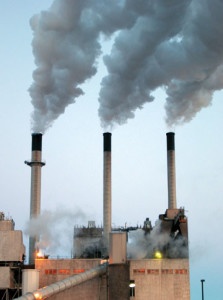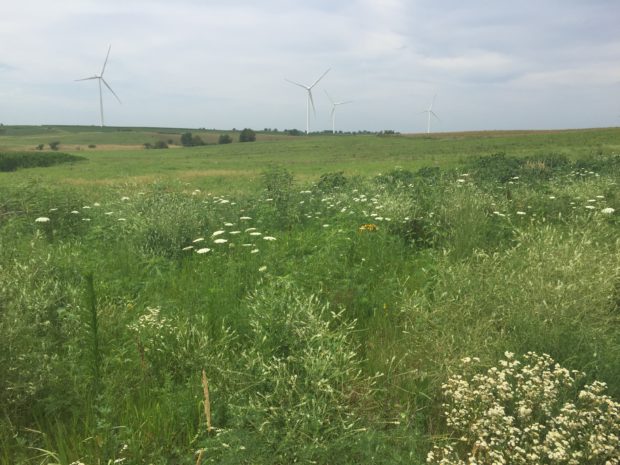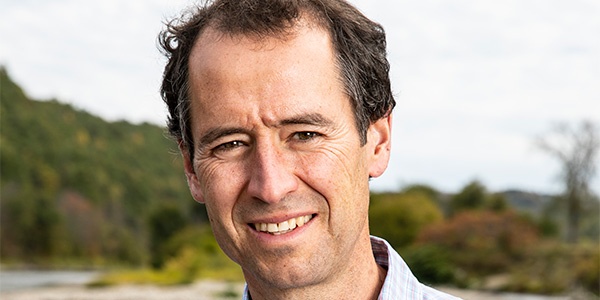We have much more to do and your continued support is needed now more than ever.
Department of Energy Proposed Rule Designed to Prop up Dirty Coal

Under the guise of pushing “grid reliability,” Department of Energy Secretary Rick Perry has urged the Federal Energy Regulatory Commission (FERC), which regulates the interstate transmission of electricity, natural gas and oil, to issue a rule that would serve to prop up dirty coal energy. This move is a backward looking maneuver to interfere with a market that is rapidly moving away from coal to cleaner sources of energy that greatly reduce pollution for people and wildlife.
Perry’s request that FERC provide regulated price incentives for power plants to recover certain “costs” and keep at least 90 days of fuel supply in inventory is a market manipulation intended to prop up aging and noncompetitive coal plants, as well as expensive nuclear plants.
Retweet the following tweet to tell Secretary Perry this move is wrong for wildlife:
Propping up outdated and dirty #coal plants is wrong for #wildlife @SecretaryPerry ! #Energy https://t.co/SQ1tHZE16e pic.twitter.com/IInoW5XlsU
— National Wildlife Federation Action Fund (@wildlifeaction) October 5, 2017
Looking Backwards and Picking the Wrong Winners

This is classic move to pick winners. Sadly, it is trying to pick the last century’s polluters, instead of looking forward to promote ways to build a truly reliable and clean grid for this century. A rapid switch to renewable energy is not only cost effective, it is needed to avoid catastrophic climate change. As climate costs mount with more intense storms and megafires, the Administration is trying to discount these costs by scuttling efforts to include carbon pollution costs in matters such as coal leasing, while putting forth this proposed rule under the pretense that coal and nuclear have hidden “benefits” that regulators should use to give these fuels an advantage.
This flies in the face of increasing evidence that renewable energy creates a more reliable electric grid. In fact, Germany and Denmark which have some of the highest levels of non-hydro renewables in the world boast 10 times fewer power outages each year than the U.S. This is in large part because they are investing in a modern grid that can effectively and reliably deliver clean energy to consumers, not propping up a bygone industry.
Indeed, with a decentralized power structure with multiple sources of clean power, storage like batteries, and microgrids that operate independently, investing in the right technologies means a grid that is much more resilient than a centralized one that is vulnerable when its main components are compromised by storms or other outages.
A modern, renewable energy system is also needed to drive down greenhouse gas pollution that harms our wildlife and our outdoor economy in check. It makes no sense to try to force the market to be more polluting when market forces are moving in a cleaner, more sustainable direction. This is utter folly.
Even the American Petroleum Institute is alarmed, saying that the government “need[s] to be careful that [it] put its thumb on the scale.”

It’s Time to Look Forward to Clean Energy for Wildlife
The last 15 years have seen incredible changes in our energy markets that, if addressed creatively and in a forward looking manner, present tremendous opportunity to continue to build a clean, reliable energy system. The old, cumbersome manner of centralized power, lumbered along by large monopoly like utilities that fire up huge coal plants, is ending. In its place, energy efficiency as well cleaner forms of generation, like solar and wind power, are creating a more a decentralized, sustainable, and over time cheaper way to deliver electricity.
The benefits of this evolving system for wildlife and the outdoors are huge: a stable climate; less mercury in our fish; less acid rain poisoning our forests and waters; less toxic waste in our air and waters; less haze; less ozone; the list goes on.
With the horrific damage we are seeing in the Gulf, out West, in Puerto Rico and Florida from events almost certainly exacerbated by storms, now is the time to build the clean resilient grid of tomorrow, not to look over our shoulder and ignore the impacts and opportunities we face.






















